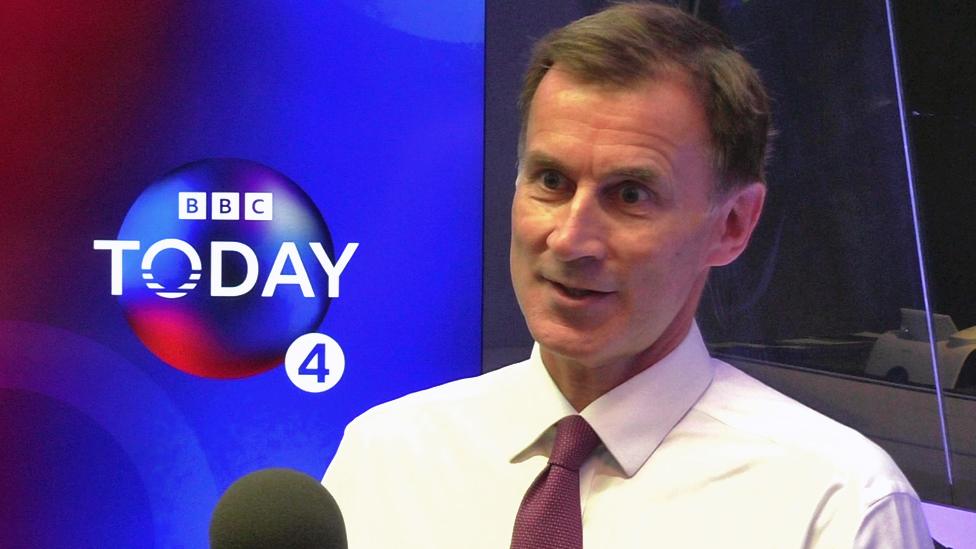Swinney says £1.5bn from UK will not improve pay deals
- Published
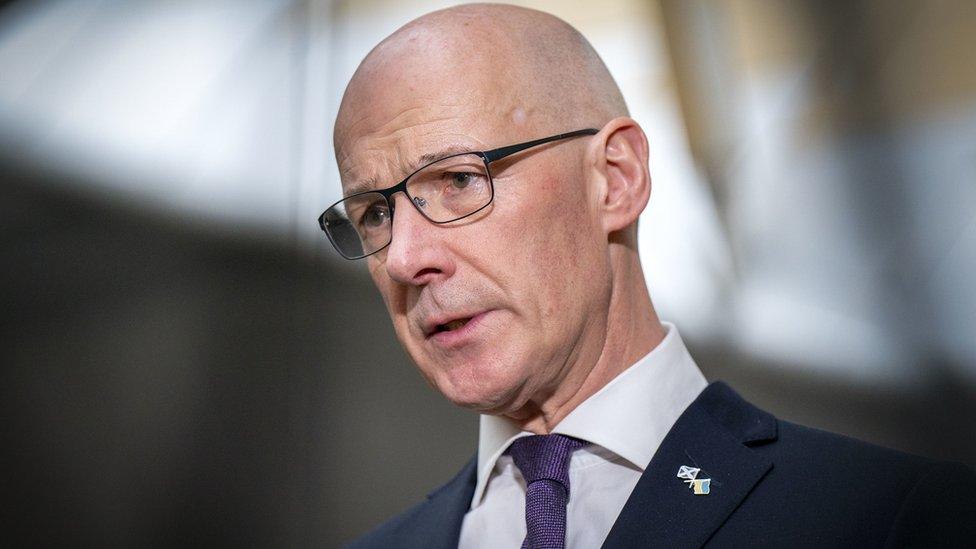
John Swinney is covering the finance brief while Kate Forbes is on maternity leave
Scotland's finance minister has said there is no money for public sector pay deals despite receiving £1.5bn from the UK government.
John Swinney said it was not possible to pay staff with money that will be paid over the next two financial years.
Nurses and teachers are among those set to strike over wage disputes.
Chancellor Jeremy Hunt told the BBC he had given extra support to Scotland, though the Scottish government say the money will be consumed by inflation.
The £1.5bn was among the measures announced in Thursday's Autumn Statement - which also included tax rises and cuts to public services.
Mr Hunt said: "We're all having to cope with inflation - what we announced yesterday was extra help for the Scottish government to deal with those pressures.
"We want to make sure that vital public services like the NHS are protected through a difficult period and the reason for that is the NHS helps people get back to work."
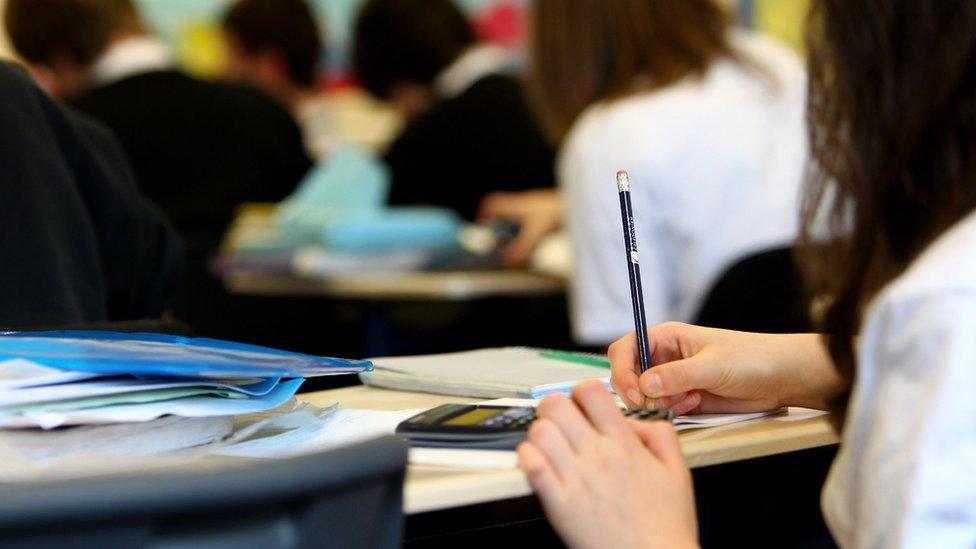
Speaking to the BBC's Good Morning Scotland programme, Mr Swinney said the UK government had provided no additional resources for this financial year.
Any further pay uplifts he said, would have to come from public service budgets.
Earlier this month Mr Swinney announced £615m of spending cuts in his emergency budget review, which came on top of £560m of cuts in September.
He said: "I have no unallocated resources in this financial year. Any changes that we make to afford public sector pay deals will have to come from cuts to public expenditure.
"I've got to get deals this year - it's all very well having money in the future, but this year it's literally a finite amount of cash left in this financial year from which have to pay staff. I can't pay members of staff for this year with next year's money, it's just not possible."


Jeremy Hunt's budget was a tale of tough choices and belt-tightening. It will have a big bearing on the 2023-24 budget that John Swinney is drawing up, to be announced on 15 December.
And before we get to that, the finance secretary hasn't actually managed to close the book on the current year's finances yet.
He has already had to find savings in excess of £1bn to deal with inflationary pressures and to fund public sector pay deals.
But with staff including teachers and nurses set to go out on strike, it won't have escaped anyone's notice that those pay talks are not yet complete.
The money Mr Hunt has promised is no doubt welcome and will be put to good use, but it is spread across the next two financial years. Mr Swinney has to balance his budget each year, meaning that future cash can't be used to fund wage deals here and now.
And with inflation still running rampant in double-digit territory, the value of extra funds can ebb away frighteningly quickly.

The Scottish Secondary Teachers' Association (SSTA) recently voted to go on strike while Scotland's largest teaching union, the Educational Institute of Scotland (EIS), has set 24 November for its own strike.
EIS members voted overwhelmingly for action after rejecting a 5% pay offer in pursuit of 10%.
The union's general secretary Andrea Bradley said they had become "increasingly angry over their treatment" by employers and the Scottish government.
Meanwhile the Royal College of Nursing (RCN) has also rejected the Scottish government's revised offer, voting to strike for the very first time.
Action is expected to start by the end of the year after RCN members across the UK voted to strike.
Watch: Chancellor defends the impact of his Autumn Statement on "squeezed middle"
Although Mr Swinney reiterated the value of the £1.5bn had been "significantly diminished" by inflation, he said there would be investment in health and social care.
It follows Mr Hunt's announcement of extra money for the NHS and schools in England.
The chancellor also announced that income tax personal allowance and higher rate thresholds would be frozen for a further two years - a move that the Resolution Foundation think tank said would pile pressure on "squeezed" middle earners.
Mr Swinney said similar considerations would be given to tax in Scotland in the December budget.
He said: "The approach that's been taken here where the wealthier are paying more and those on low incomes are paying less are the are the tax choices that we've made as government in the past.
"I don't think it will be a particular revelation for people to think those will be points I'll be thinking about in the next few weeks."
- Published17 November 2022
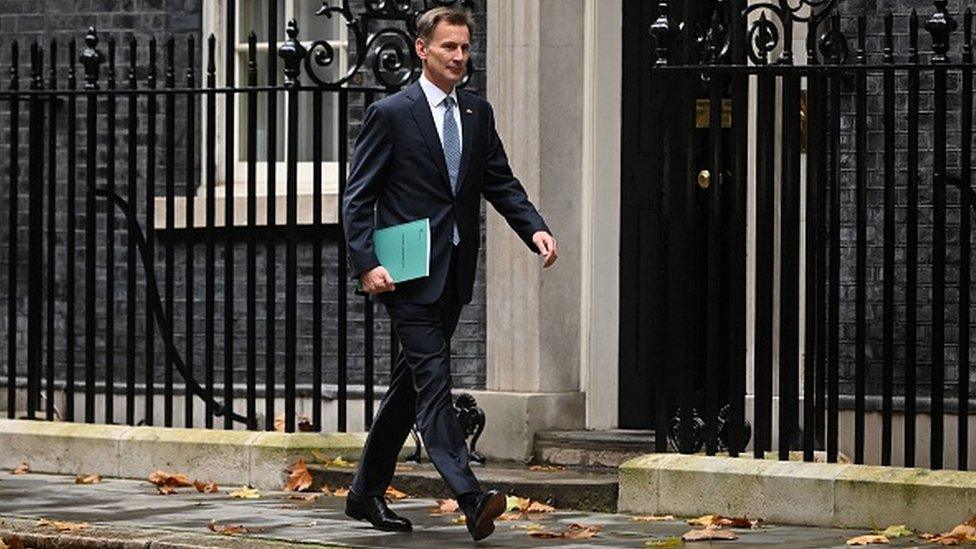
- Published15 December 2022
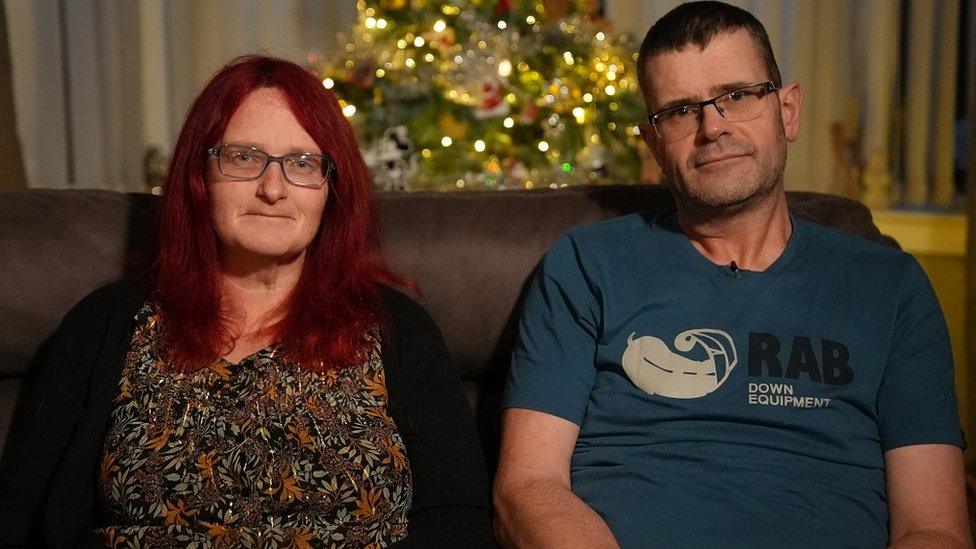
- Published18 November 2022
